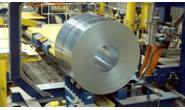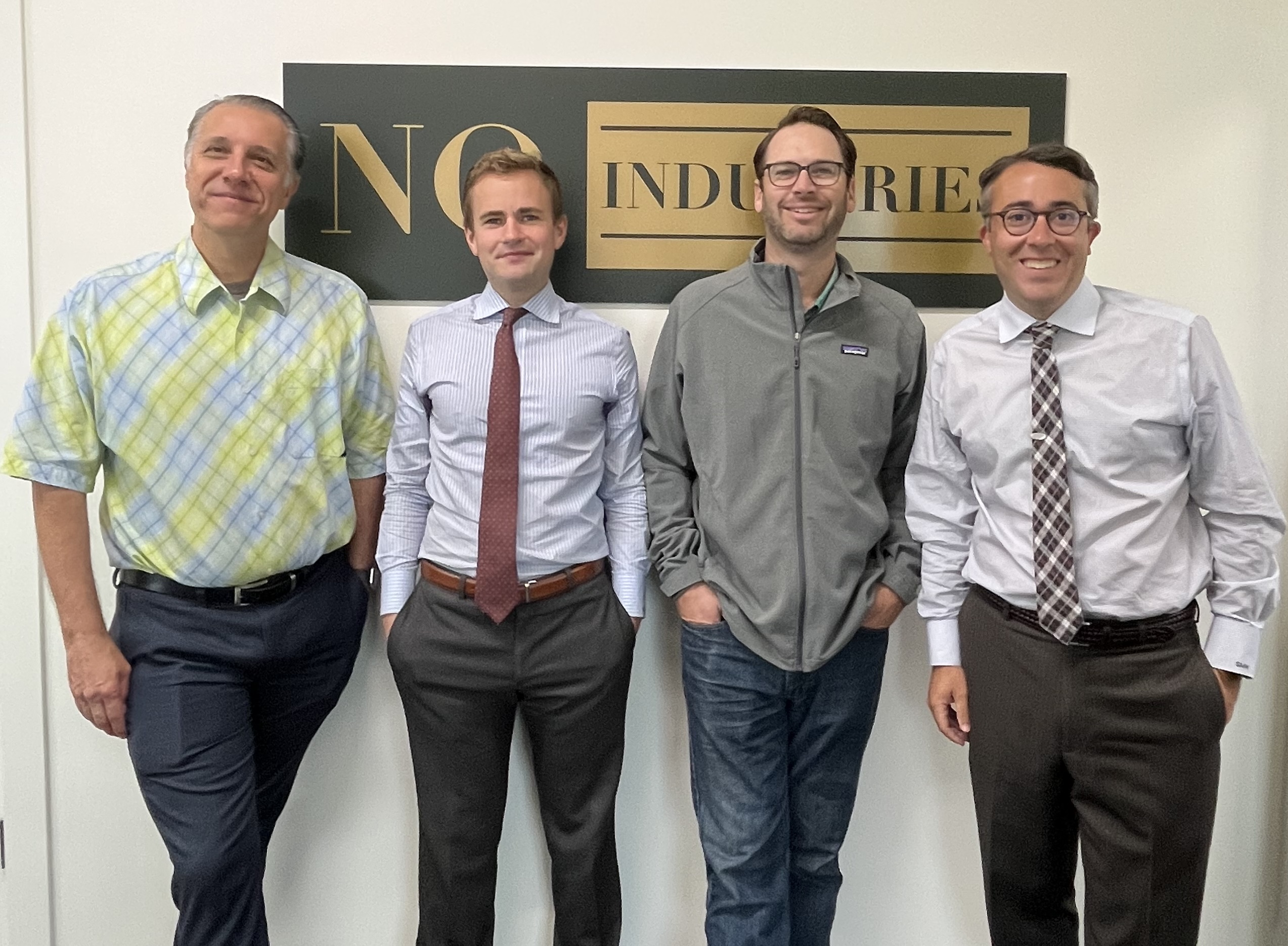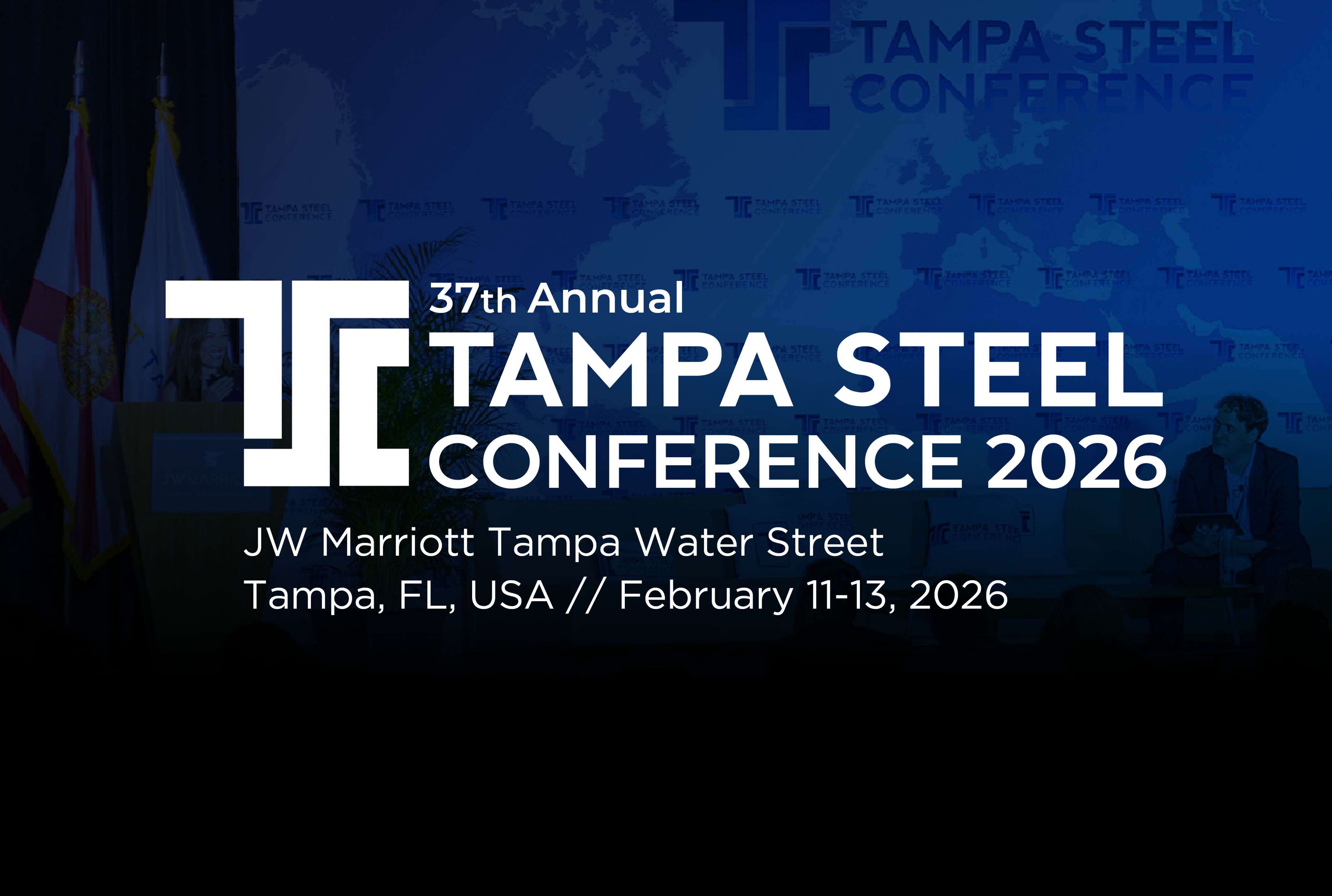Community Events

September 28, 2022
SMU Spotlight: The Renaissance Men of NQ Industries
Written by Becca Moczygemba
In a time where technology is fashionable and trends change in the blink of an eye, starting fresh can feel like a step in the wrong direction. For the team at NQ Industries, a steel startup in the Pacific Northwest, it’s anything but that.
Steel Market Update (SMU) caught up with the founders of NQ Industries — Stanley Walker, CEO; Mike Griffin, vice president of information technology; Rob Lechich, production manager; and Karson Kobelin, vice president of sales — to hear more about what’s on the horizon for the Portland, Ore.-based company.
 Below is the full text of the interview.
Below is the full text of the interview.
SMU: I’ve found that people in the steel industry have diverse backgrounds. How did you guys get your start?
Mike Griffin: I was working in retail and wanted a change, so I started as an office temp at Oregon Metals in 1993. Then, I kind of moved up through the ranks and took on different roles at that company over almost 30 years. I had not intended to get into steel, but something must have been good for me to stick around this long.
Stanley Walker: I grew up working at a golf course where a lot of steel guys played. I kind of became enamored with the business at a young age, hearing all these great stories from these guys. They took me under their wing and when I graduated college, I had an opportunity to either work at a steel mill here in Portland or go work at a service center, and I chose the service center route and was there for 15 years and had a great time doing it.
Karson Kobelin: Stanley had been at Oregon Metal Services for five or six years before he hired me on, but we had met years before at the same golf course where I worked as a caddy, and he was running the caddy program. Through Stanley I learned about the steel industry and met some of his connections and have been in it ever since.
Rob Lechich: I have a background in heavy civil construction. I met Stanley six years ago and we’ve been talking about a venture for a while. He knows my reputation and what I’ve done in civil construction, and he knew my experience would transfer over to being able to figure out how we can do this faster, better, smarter, more efficiently.
SMU: Can you give us some insight into who NQ is?
Walker: Right now, and I say right now because we’re in the evolution of growth, we’re a regional OEM that emerged from a service center. We have a team that understands the steel market, especially this region. This region used to be a powerhouse for flat-rolled steel, and we’re looking to bring that proudness back and continue to grow. This group is extremely energetic, extremely prideful about what we do and who we do it with. I think both upstream and downstream, it’s that legitimate sense of partnership and comradery that is unique to the steel business, and that’s part of why we all love it.
Kobelin: I think we’re a very creative crew. In our prior service center life, it was always frustrating when it seemed like the answer to growth was just doing more of the same thing. It was always like, well, let’s just sell more sheets. But now we can get creative and find different ways in this industry that a lot of people have not looked at to make money.
Lechich: What we’ve done today looks very black and white; we’re making a product with some minor variations but we’re malleable. We’re energetic and innovative. You know, we’ve already taken phone calls and will continue to take phone calls asking, “Hey can you guys do this?” We get to make those decisions and continue to diversify.
SMU: You mentioned your region was once a powerhouse for flat-rolled steel. Are we going to see a Pacific Northwest steel renaissance maybe?
Walker: We ARE the renaissance men. We’re doing it.
SMU: That’s awesome, love it. So what are the products you’re currently offering?
Walker: Right now, we’ve got a handful of welders, so pretty much anything you can weld we’re able to produce. The first go-to-market products were dumpsters and bins, for heavy recycling and scrap use. Most of what we’re producing right now, or welding, is using anything from maybe 1-inch to 16-gauge hot roll.
SMU: You touched on getting creative, and I want to hear more about that. Without telling me all your secrets, what are some creative projects you guys have thought about?
Kobelin: Yeah, I think the steel industry as a whole continues to do a lot of the same things. We always wanted to look further downstream to see what we could do in-house with all the capabilities we have, and that’s what put the idea of NQ into our heads. I think it’s something we can quickly build on.
SMU: There are lots of opportunities for people coming into our industry. What advice do you have for people who are new?
Kobelin: The industry needs people who are brand new and younger, new thinking. I would say to just give this industry a chance.
Walker: Don’t be afraid if you don’t know anything about steel. It’s a great industry for growth and a career path. Have the same level of respect for that guy or girl unloading the truck as you would for an executive. Don’t burn any bridges; you never know who you’re going to be working with or working for.
Lechich: It can be taught. That fire can be lit inside any person who wants to come work and learn, and the cool thing for me is that we all looked at something for long enough, that we’ve been doing it for so long that we’re blinded by the process. Having a fresh set of eyes could show us something that we may not have ever seen.
SMU: How do you define success?
Griffin: At this point it’s just that this feels good. We are enabled to do what we want to do and there’s a small number of people to convince if we have a good idea and want to do something with it.
Walker: I saw these guys not enjoying their jobs anymore, and that’s super sad to me. In the first week I was here, I saw the guys smiling, listening to Steely Dan, and having a great time at work. I’m so happy that’s back. Success is the bottom line and profitability, but also having joy in what you do and wanting to drive into work every day.
SMU: What do you envision for the future?
Griffin: Our intention is to manufacture multiple lines of products. We’re excited to take what we learned and what we’re doing right now and apply it to different customers. We want to follow our nose to what we like and what we think there’s a need for.
Find more information about NQ Industries here.
By Becca Moczygemba, Becca@SteelMarketUpdate.com






